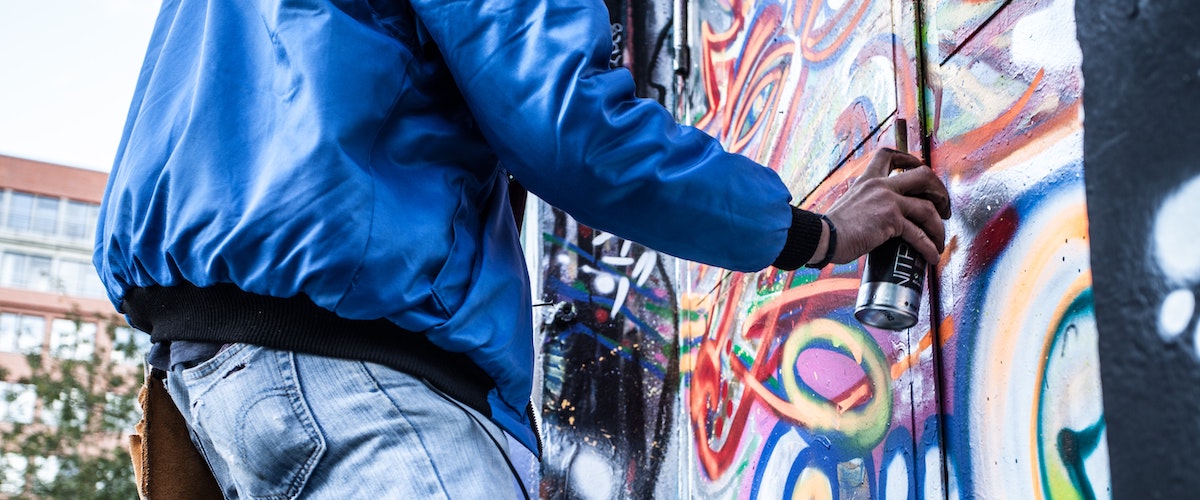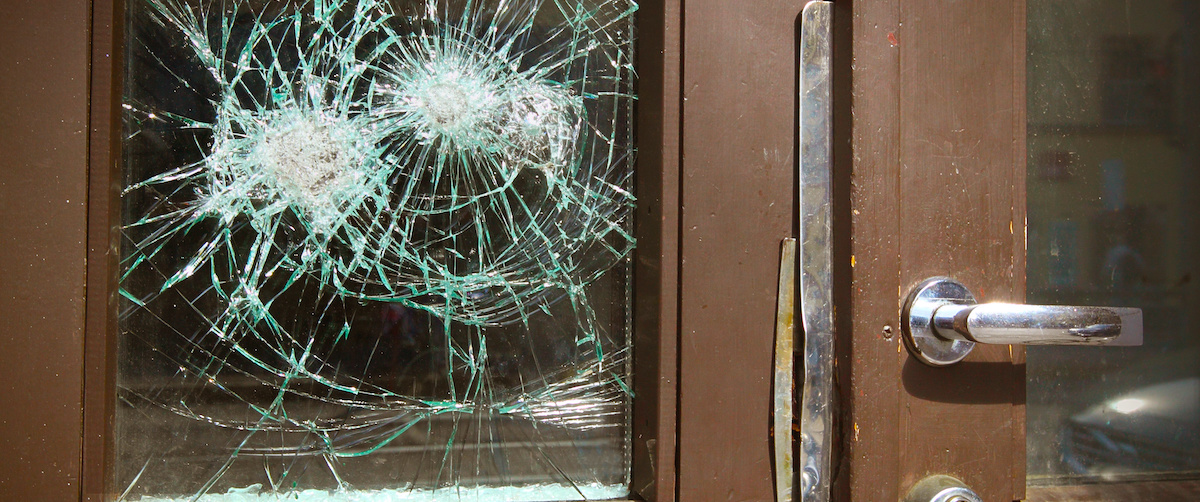Listen To This Page
Understanding Vandalism Laws & Charges
As a leading law firm in Phoenix, Arizona, we at The Law Office of Daniel Hutto understand the seriousness of vandalism charges and their potential implications on your future. If you or someone you know is facing misdemeanor or felony charges related to vandalism or a property destruction-related hate crime, it is crucial to seek immediate legal representation from a skilled Phoenix vandalism defense attorney.
With decades of experience in criminal defense, our dedicated team is here to provide you with aggressive and effective representation. We offer free case reviews to evaluate your situation and provide you with the guidance necessary to protect your rights.
You Have Rights, and We’re Here to Help!
What You Should Know About Vandalism Laws in Arizona

Vandalism Laws & Charges | Defined
Arizona vandalism laws are outlined in the Arizona Revised Statutes § 13-1602. According to this section of the penal code, it is illegal to deface or damage another person’s property. The law considers various actions as acts of vandalism, which can lead to arrest and subsequent charges:
- Defacing or damaging property: Any intentional act that causes damage or defacement to someone else’s property without their consent is considered vandalism. This includes graffiti, marking, scratching, or otherwise altering the property’s physical appearance.
- Tampering with property to impair its function/value: Any action intended to impair the proper functioning or diminish the value of someone’s property can also result in vandalism charges. This may involve actions such as disabling security systems, interfering with utilities, or damaging movable objects.
- Drawing or inscribing slogans, signs, words, or other symbols: Creating graffiti or markings on public or private buildings, whether through spray paint, etching, or any other means, is commonly associated with vandalism.
Vandalism Relating To Hate-Crimes
In Arizona, a charge of vandalism becomes a hate crime when it is motivated by bias or prejudice. That is, it becomes a hate crime when the property damage inflicted by the offender is targeted based on the victim’s actual or perceived race, religion, color, national origin, sexual orientation, gender, disability, or ancestry.
Vandalism, in general terms, involves deliberately damaging or defacing another person’s property without permission. In the context of a hate crime, typical acts of vandalism might include graffiti, damage to religious symbols, arson, or destruction of personal property – actions intended to threaten, intimidate, or harm individuals or groups based on their membership in a certain group or category.
Currently, Arizona does not have a stand-alone hate crime law, but the state’s criminal code does allow for sentence enhancements if the motivation for certain crimes, which can include vandalism, is bigotry or prejudice. This means that prosecutors can seek increased penalties if they can prove a hate crime occurred.
Anyone facing charges of vandalism as a hate crime should seek the counsel of an experienced attorney who can provide appropriate guidance and defense.
The exact legal consequences of vandalizing property as part of a hate crime in Arizona depend on different factors, including the extent of the damage, the circumstances of the case, and the prior criminal record of the accused. However, due to the enhanced nature of a hate crime charge, the penalties will likely be more severe than a standard vandalism charge.
Common Examples of Vandalism Acts
Vandalism encompasses a wide range of acts that involve damaging another person’s property without their permission. Some common examples of vandalism include:
- Slashing someone’s tires: Purposefully damaging the tires of a vehicle, leaving it inoperable and costing the owner significant expenses for repairs or replacement.
- Keying someone’s car: Scratching the surface of a vehicle using keys or any other sharp object, which results in permanent damage and a decrease in the vehicle’s value.
- Egging someone’s home or car: Throwing eggs at someone’s property, which can cause stains, discoloration, and damage to the paint or exterior.
- Spray paint on a property: Creating graffiti or unauthorized artwork on buildings, walls, or other structures using spray paint, leaving behind permanent damage and defacing the property.
- Breaking windows: Intentionally shattering windows of buildings or vehicles, leading to costly repairs, safety hazards, and property devaluation.
- Damaging street signs: Removing, defacing, or damaging street signs, hindering navigation and endangering public safety.
- Kicking or throwing someone’s property around: Engaging in destructive behavior by forcibly kicking or throwing someone’s personal belongings, resulting in damage, destruction, or loss.
Even seemingly harmless pranks, such as TP’ing a home or egging someone’s vehicle, fall under vandalism and can have legal ramifications. It is crucial to consult a skilled attorney immediately if you are accused of any form of vandalism to protect your rights and mount a strong defense against the charges.
Potential Penalties for Vandalism In Arizona
In Arizona, the penalties, fines and sentencing for vandalism charges depend largely on the extent of property damage and can vary significantly.
1. Criminal Damage: Vandalism is most commonly charged under criminal damage statutes in Arizona. Penalties are determined according to the value of the damage caused:
- Less than $250: A Class 2 misdemeanor, punishable by up to 4 months in jail and a fine of up to $750.
- $250 to $1,000: A Class 1 misdemeanor, punishable by up to 6 months in jail and a fine of up to $2,500.
- $1,000 to $2,000: A Class 6 felony, punishable by up to 2 years in prison and a fine of up to $150,000.
- $2,000 to $10,000: A Class 5 felony, punishable by up to 2.5 years in prison and a fine of up to $150,000.
- More than $10,000: A Class 4 felony, punishable by up to 3.75 years in prison and a fine of up to $150,000.
2. Graffiti/Tagging: The penalties for graffiti or tagging depend on the number of offenses. The first offense is a Class 1 misdemeanor which can result in up to 6 months jail time and a fine of up to $2,500. For the second or subsequent offense, it is a Class 6 felony with up to 2 years of jail time and up to $150,000 in fines.
3. Hate Crime Enhancement: If vandalism is committed as part of a hate crime – that is, it’s shown that the act was carried out due to prejudice/bias against the victim’s race, religion, gender, sexual orientation, etc. – the penalties can be significantly increased. Though Arizona does not have a stand-alone hate crime statute, bias can be considered an aggravating factor during sentencing, potentially leading to harsher penalties.
Note that all felony convictions also require payment of a victim’s compensation fund assessment, along with potential probation fees and restitution to the victim for the damage caused.
…all felony convictions relating to hate-crimes require payment of a victim’s compensation fund assessment
A “Victim’s Compensation Fund Assessment” is a monetary penalty that is often included as part of a criminal sentence in several states. This money goes into a fund that is designed to provide financial assistance to victims of crimes. This fund might cover various expenses that are directly related to the crime, such as medical and counseling costs, lost wages, funeral expenses, and other costs borne by the victim or the victim’s family as a result of the crime.
As the penalties for vandalism and hate crimes can be significant, it is highly recommended that anyone charged with these offenses in Arizona consult with a legal professional for advice and representation.

Defense Strategies for Vandalism Charges
Defending against vandalism charges, including those associated with hate crimes, requires a skilled and experienced attorney who can develop an effective defense strategy. Here are some potential defense strategies an attorney might employ:
- Lack of Intent: An essential component of a vandalism charge is proving the defendant intended to damage the property. If an attorney can argue that their client did not intend to cause damage, this could potentially dismiss the charges.
- Insufficient Evidence: The prosecution must provide enough clear and convincing evidence to prove guilt beyond a reasonable doubt. If the attorney can show that the evidence is weak, incomplete, or improperly collected, the charges could potentially be reduced or dismissed.
- Mistaken Identity: In cases of mistaken identity or false accusation, an attorney could prove that the defendant was not at the scene of the crime when the vandalism occurred or that they’ve been falsely accused.
- Consent: If the accused had consent to alter or possibly damage the property, the defense could argue that the charges do not apply. This might apply when there was a reasonable belief on the part of the defendant that they had consent.
- Right to Freedom of Speech: In cases involving graffiti or other acts that could be construed as an expression of free speech, an attorney may argue that the defendant was merely exercising their First Amendment rights. This defense must be used carefully, as it doesn’t override the rights of property owners.
When it comes to hate-crime related vandalism, the task is twofold. Not only does the defense need to challenge the act of vandalism itself, but they also need to challenge the evidence pointing towards bias or prejudice.
For example, they could argue that the crime did not occur due to the victim’s race, ethnicity, religion, or another protected factor, or that the supposed indicators of a hate crime (like certain symbols or words) were coincidental or misinterpreted.
Please note that the above defenses are just possibilities. A competent attorney will assess the specifics of an individual case, considering all surrounding circumstances and evidence, to craft the most suitable defense strategy.
How The Law Office of Daniel Hutto Can Help
Facing vandalism charges can be overwhelming, with potential long-term consequences that impact your personal and professional life. Hiring an experienced and dedicated vandalism defense attorney from The Law Office of Daniel Hutto can significantly increase your chances of obtaining a favorable outcome in your case.
Our team of seasoned attorneys will meticulously analyze the details of your situation, investigate the evidence, and develop a strong defense strategy tailored to your specific circumstances. We will challenge the prosecution’s case, negotiate on your behalf, and strive to secure reduced charges, alternative sentencing options, or even case dismissals, depending on the circumstances.
Contact The Law Office of Daniel Hutto for Vigorous Vandalism Defense
If you require assistance with vandalism charges in Phoenix, Arizona, don’t hesitate to reach out to The Law Office of Daniel Hutto for a free consultation. Our experienced attorneys are dedicated to protecting your rights and providing aggressive representation throughout the legal process. Call (602) 536-7878 today to discuss your case and explore the best course of action. Remember, prompt action is crucial in building a strong defense against vandalism charges.



